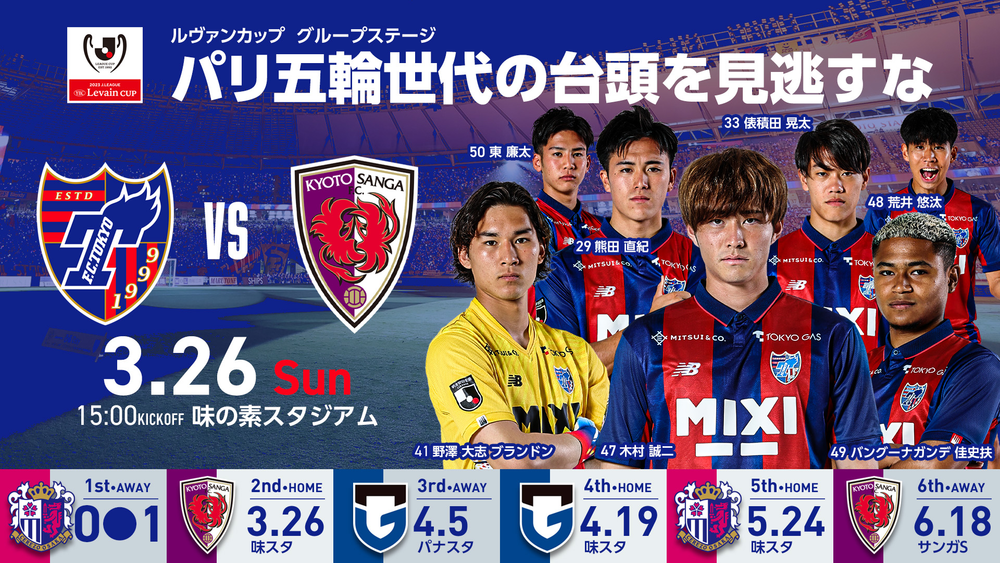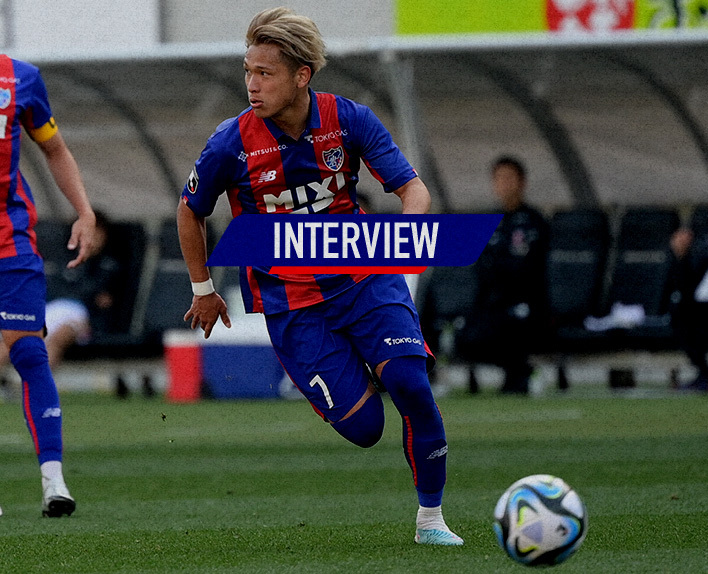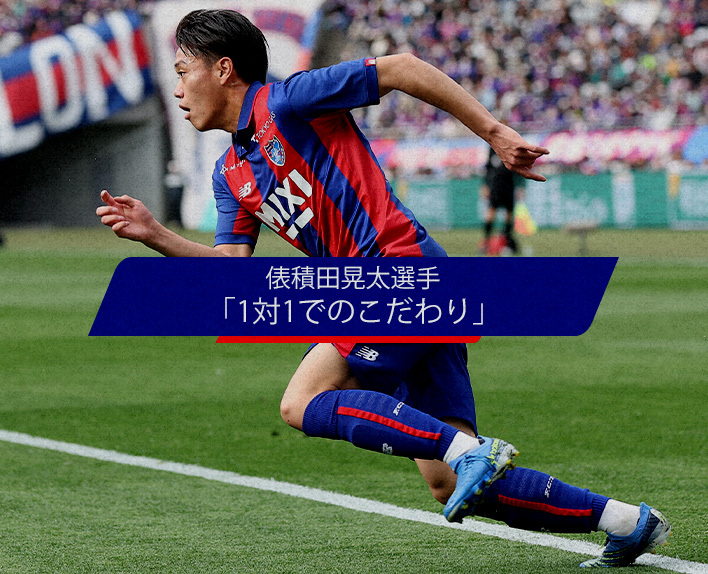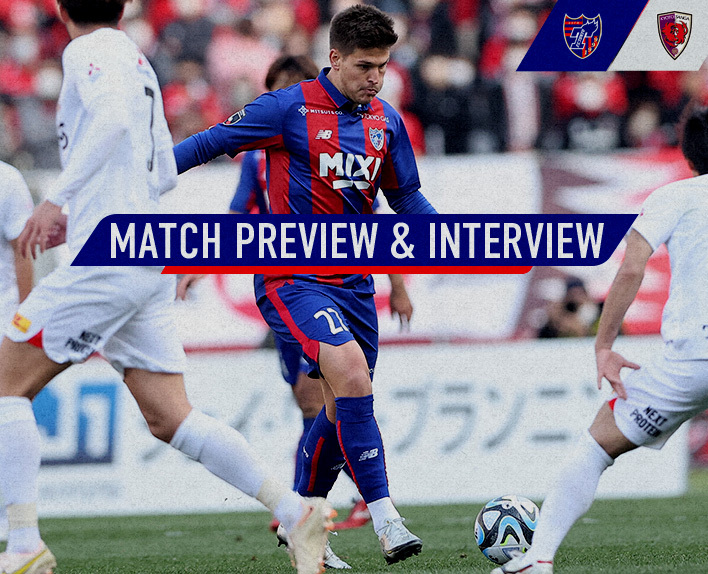Q: How was the U-20 Japan national team?
It was good to win the match that determined the U-20 World Cup and secure a spot. It was a challenge that we couldn't beat Iraq in the semifinals, but overall it was a good experience.
Q: Was it a tournament that left you with regrets?
A, I think everyone has regrets. The only place where we can vent this frustration on the pitch is at the U-20 World Cup. I think individual playing level becomes important when we go to the world. I want to power up and face the tournament.
Q: Did you have a good experience working as the captain?
A, I was also a captain in high school, so I did it the same way as back then. It's really frustrating that I couldn't lead the team to victory. If I have the opportunity to be the captain again in the U-20 World Cup, I want to do my best to lead the U-20 Japan national team.
Q: What were you conscious of as the captain in your activities for the U-20 Japan national team?
On the pitch, I was conscious of focusing on my own play. Not because I am the captain, but because it is important to observe and interact with all the players. I think that is crucial.
Q: I felt a strong sense of responsibility while watching the game.
I think all the U-20 Japan national team players, including myself, have a sense of responsibility. As we are representing Japan, we all played with the determination to never give up until the end. We ended up losing in a penalty shootout, but I felt that we need to win the next time.
Q: How was it like to have Kumada as a junior player in the team?
Like winning the top scorer of the tournament, he scored many goals and helped the team win. I already knew Kumada's strengths. We played together in the attacking midfield and striker positions many times, and I was conscious of positioning that could bring out his strengths.
Q: I think the young players on the team are also inspired by player Matsuki.
A, if I were to mention a name in particular, Kota TAWARATSUMIDA has been making impressive plays in the league matches. Among the young players who joined this season, besides TAWARATSUMIDA, I was allowed to play freely last season. I am still a young player, but I am conscious of allowing first-year players to play freely. I believe that if I can lead the young players, the team will naturally become stronger. I want to support the young players with awareness.
Q: There was a tough situation where the midfield strength became weak during the period when player Matsuki was absent.
A, I don't think it's because I'm not there. Shuto ABE and Ryoma WATANABE got injured, and I just happened to be absent at that time. The number of midfielders was already low, and we couldn't change the members. If I have the opportunity to participate in the Levain Cup, I want to play in a way that can have a positive impact on the team.
Q: I think it was your first national team activity in a while. Did you experience any changes in awareness throughout the tournament?
A, this kind of experience is not easy to come by. It was a match that determined the participation in the U-20 World Cup, so I was more motivated than usual. It was a difficult battle because the sense of responsibility not to lose was starting to grow, but it was good to be able to secure the participation right as one of the achievements.
Q: Do you have any newly sprouted feelings?
A, I was entrusted with the captaincy and performed well in Tokyo as well, but I was able to gain more leadership and experience of winning the team with my own play. I want to make good use of that in Tokyo.
Q: What kind of player is Ryunosuke SATO? What can we expect from him in the future?
A, I also think that player Sato is a similar type to myself. It's really good that he can play his own game without being afraid at that age. I'm still a young player, so I don't have much to say, but I think it's good if he continues to grow smoothly.
Q: What was 16-year-old Matsuki thinking about?
At the age of 16, I didn't have the composure like player Ryo SATO. I think SATO is amazing because he was constantly chasing the ball.
Q: Do you call out to each other?
A, I contacted before the game started. I also watched the game and I think it was good because they played well.
Q: What kind of play do you want to show after coming back to Tokyo?
A, I think the results will be more demanded. I want to face myself firmly and always show good plays to the fans and supporters.
Q: I think the team is hungry for victory. I think Matsuki's return will be a plus.
A, I want to focus only on winning the upcoming match and work towards improving the team in a positive direction.
Q: What do you want to achieve before the U-20 World Cup in May?
A, it is still scoring ability. Through this Asian Cup, I realized that a very high individual level is necessary. I want to continue to produce good results.
Q: Have you watched the WBC?
I haven't watched everything, but congratulations on winning. As an athlete myself, I felt that the baseball world has proven that sports can move and captivate people's hearts. I hope to contribute to the excitement of the soccer world, including myself, in the future.
Q: Pepper Mill performances were also seen during the tournament.
A, I was thinking of jumping on the bandwagon. Player Kikuchi (Shimizu S-Pulse) started saying he wanted to do it. In that sense, the team was really well united.
Q: What do you want to challenge for the world?
A, I think I can't win in the world without further leveling up. This time, I was able to feel it by playing against Asian countries. I want to leave results in Tokyo so that I can further level up.






